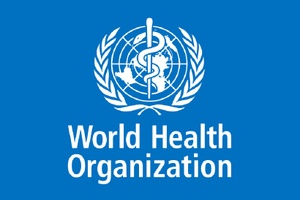WHO urges countries to expand access to rapid molecular tests for the detection of TB and drug-resistant TB
WHO releases updated guidelines for TB diagnosis, recommending rapid molecular tests as initial tests for TB detection.
30 June 2020 | GENEVA - The World Health Organization (WHO) is urging countries to expand access to rapid molecular tests for the detection of TB and drug-resistant TB in updated consolidated guidelines, released today. The guidelines are accompanied by an operational handbook to facilitate rapid implementation and roll out of rapid molecular tests by national TB programmes, ministries of health and technical partners.
“The use of rapid molecular assays as the initial test to diagnose TB is recommended instead of sputum smear microscopy as they have high diagnostic accuracy and will lead to major improvements in the early detection of TB and drug-resistant TB,” said Dr Tereza Kasaeva, Director of WHO’s Global TB Programme. “We now need to urgently ensure universal access to these rapid molecular tests. This will impact positively on reducing transmission and enabling faster access to accurate life-saving treatment that will lead to better outcomes for those affected.”
The consolidated guidelines and the associated operational handbook recommend key updates of the approaches to diagnose TB including:
- The use of Xpert MTB/RIF assay, Xpert Ultra assay and Truenat assay as the initial test to diagnose pulmonary TB and to detect rifampicin resistance. This replaces smear microscopy and culture.
- The use of Xpert MTB/RIF assay and Xpert Ultra assay for improved diagnosis of TB and rifampicin resistance in children, in specific specimens such as sputum, stool, nasopharyngeal and gastric specimens
- The use of Xpert MTB/RIF assay and Xpert Ultra assay for improved diagnosis of TB and rifampicin resistance in patients with broad range of extrapulmonary TB.
The Xpert MTB Rif assay has been used worldwide since 2010, while the Xpert Ultra assay and Truenat assay are new technologies.
The above updates were signaled in January 2020 through a Rapid Communication from WHO in advance of the publication of the updated guidelines. The purpose was to help national TB programmes and other stakeholders plan and prepare in advance for the rapid transition to new diagnostic tools at country level.
Globally, diagnosis of TB and drug-resistant TB remains a challenge with a third of people with TB and two-thirds of people with drug-resistant TB not being detected. Accelerated efforts to diagnose TB and drug-resistance are essential to end the global TB epidemic and achieve the targets of the political declaration of the UN high-level meeting, the WHO End TB Strategy, the UN Sustainable Development Goals, universal health coverage and the triple billion targets of WHO’s General Programme of Work.
For more information on diagnosis of TB and drug-resistant TB, click here.
Source: WHO


